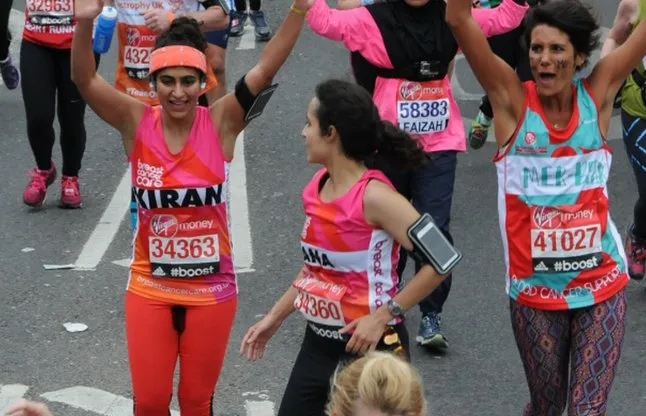Have we thought about how periods can affect the performance of female athletes?
This Menstrual Hygiene Day we should erase the taboo surrounding the topic of menstruation and discuss the issues faced by athletes during their periods.
Sportswomen have always faced step motherly treatment when compared to their male counterparts. From making do with poorer infrastructure and training facilities to smaller remunerations, women athletes face a struggle every step of the day. They also have to battle mother nature alongside man-made issues. Even while competing in high-stress competitions at the national and international level, including Olympics, women athletes have to deal with the pain and discomfort of having their periods. This Menstrual Hygiene Day, HerStory wants to erase the taboo surrounding the topic of menstruation and discuss the issues faced by athletes during their periods.

Chinese swimmer Fu Yuanhui got her period the night before she was set to compete in the women's 4x100-metre relay during the Rio Olympics. After completing the race and earning fourth place with her teammates, a reporter asked her why she was on the ground clutching her stomach and doubled-over in pain.
"I feel I didn't swim well today—I let my teammates down," she responded frankly. "My period came last night and I'm really tired right now. But this isn't an excuse, I still didn't swim as well as I should have."
While many appreciated Fu for her honesty and bringing the taboo topic of menstruation out in the open, many criticised the swimmer for the unhygienic act of getting into the swimming pool during her period. Experts say that it’s absolutely hygienic to use the pool wearing a tampon. Fu's comments also kicked off a discussion on China's popular social media app Weibo about the use of tampons, which aren't commonly used there.
Given how much of a taboo topic menstruation still is, both in professional sports and in general, it is extremely important to have such open and healthy conversations.
The Rio Games had the largest number of women competing in Olympic history, according to the International Olympic Committee, with 5,157 women out of 11,429 total athletes.
How periods affect athletes
Having a period during tournaments, especially athletic, can be difficult. Cramps and fatigue aside, there are the practical issues of changing the pads or tampons. Athletes from highly intensive sports like gymnastics or athletics are also prone to developing athletic amenorrhoea, or frequent missed periods, which can lead to reduced fertility and loss of bone density, if untreated.
Marathoner Kiran Gandhi made news when she chose to run without a pad or tampon, bleeding through her running clothes during the London Marathon 2015.
Twenty-six-year-old Kiran Gandhi got her period on the night before she was set to run her first-ever 26.2-mile race. She had spent a full year training and had never practiced running marathon-length distances while on her period. To her, the thought of going through such an intense mind-body challenge with a tampon or pad in between her legs did not make sense.

“It seemed like it would chafe me, it seemed uncomfortable, and I didn’t want to have to stop running to deal with something, I wanted to just go and be free,” Kiran later said. So she completed the London Marathon in 4 hours, 49 minutes and 11 seconds with blood running freely between her legs and shocking the spectators.
She used her period flow as a form of protest to make people understand that menstruation is completely natural—“something we should honour, enable, allow”—but is considered shameful in many places around the world.
Better understanding periods is simply a part of helping female athletes perform better and more comfortably.







